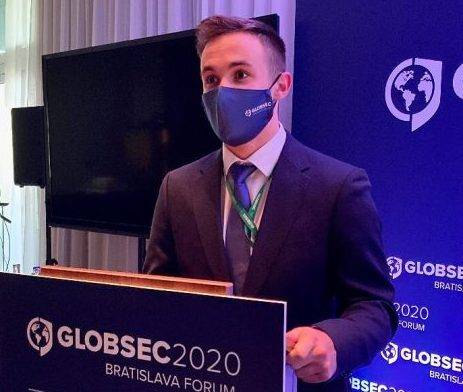The tensions between Israel and the Gaza Militants increased following the death of a prominent Palestinian Islamic Jihad (PIJ) member while he was on a hunger strike in an Israeli prison. In response, the PIJ fired approximately 100 rockets toward Israel on Tuesday, May 9. The Israeli Defense Forces (IDF) then initiated Operation Shield and Arrow, launching precision strikes and killing five PIJ senior members. Among the senior members killed were Ali Ghali, the Palestinian Islamic Jihad’s Rocket Launching Force commander and his Deputy Ahmed Abu-Deka. The IDF tweeted that the two were “responsible for the recent rocket barrages launched against Israel”. The fighting between Israel and Gaza militants has been the heaviest since August 2022, claiming at least thirty Palestinian lives and one Israeli life.
As confirmed by the IDF spokesman, the rockets were launched by PIJ only, and there were no indications of Hamas’s involvement. Hamas, as the governing moevement of the Gaza Strip and therefore responsible for the welfare of the Strip’s population, has little practical justification for engaging in conflict with Israel just to support PIJ. Given the extreme poverty and restrictions imposed by the Israeli and Egyptian blockade on Gaza’s land, air, and sea access, Hamas must navigate a delicate balancing act in its relations with Israel. This has been visible since last year when Hamas has been less willing to fight with Israel, given the issuance of approximately 20,000 work permits to Gazans. By working in Israel, Gazans earn significantly more than they would in impoverished Gaza; hence they could bring more money to the Gazan economy, among other benefits.
On the other hand, the stamina of Palestinian Islamic Jihad to fight could be attributed to having no responsibility in Gaza and being driven only by its ideological goal of replacing Israel with an Islamic state. As Zakaria al-Qaq, a Palestinian expert in national security, posits: “Palestinian Islamic Jihad exists just for one purpose: to fight and ‘liberate’ the country”. It is worth noting that this group abstains from engaging in political affairs and maintains a strong stance against the Palestinian Authority, choosing to focus solely on confronting Israel. The group is supported and supplied by Iran, especially in terms of training, expertise, and money, while the majority of the weapons as rockets are produced locally, hence the significance of the assassination of the Palestinian rocket programme director.
After five days of fighting and through the Egyptian-led mediation efforts, Israel and PIJ have reached a truce. However, the ongoing conflict between Israel and multiple Palestinian militant factions is far from a solution. For example, on May 15, Israeli forces were put on high alert due to the 75th anniversary of Nakba (also known as the Palestinian catastrophe connected to the displacement of Palestinians and the establishment of Israel), particularly in Jerusalem near the Temple Mount, which has been at the centre of tensions and unrest for weeks.
From an Israeli point of view, the rocket offensive of PIJ has allowed Israeli leaders to shift public attention away from judicial reform, which has arguably threatened Israeli democracy, and the incumbent government has been faced with considerable opposition from the Israeli public. The targeted killings of senior members of the PIJ might temporarily unite the Knesset factions (Israeli National Assembly) as the opposition and coalition support the strikes. However, considering that the conflict has been very much isolated and has ended with a truce, judicial reform will again rise to the top of the opposition’s political agenda.
Photo credit: Mustafa Hassona_flickr.com


